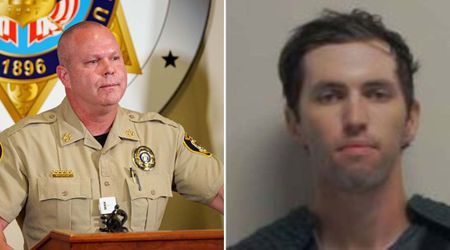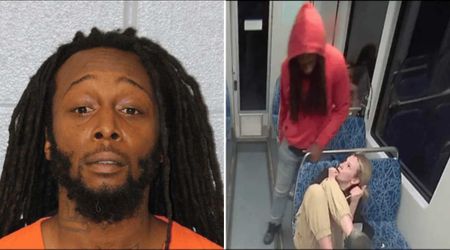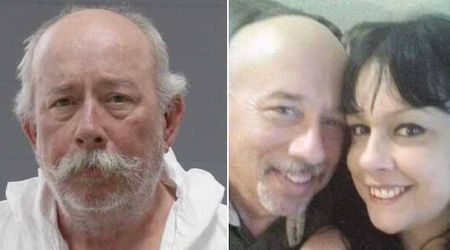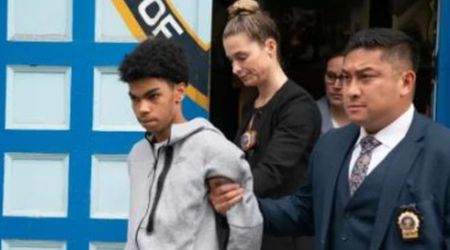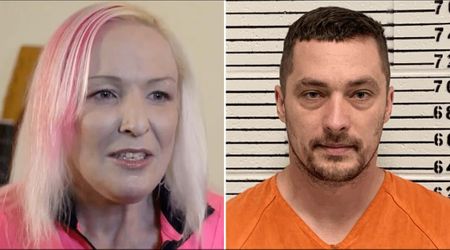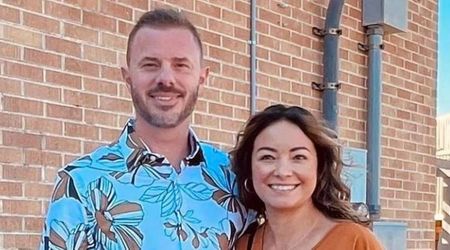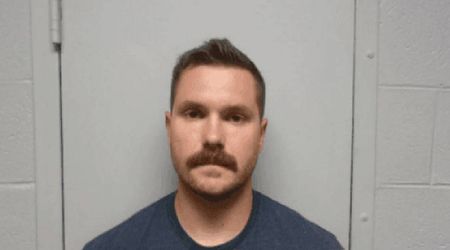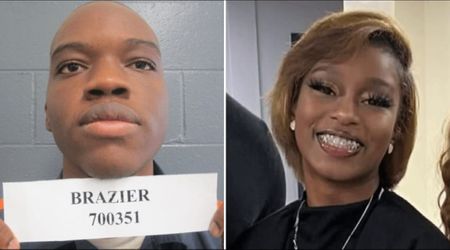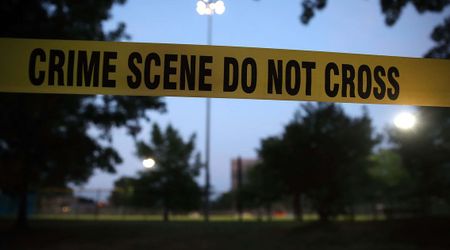Delphi murders: 'The Murder Sheet' co-host claims Richard Allen is 'his own enemy' for making damaging statements about his crime
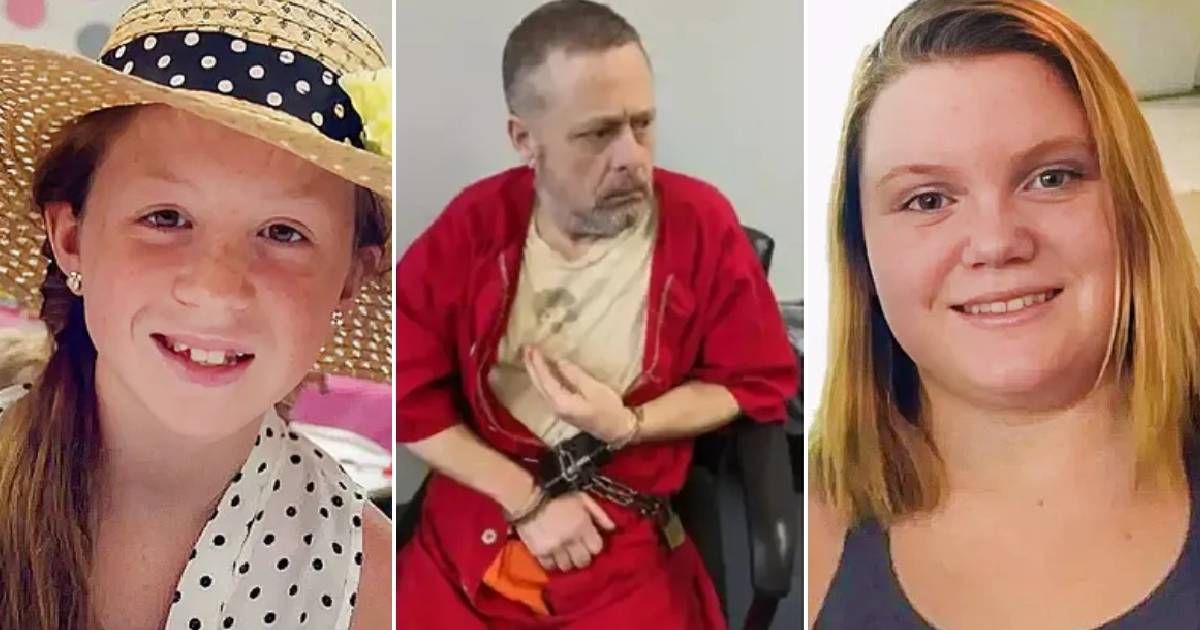
DELPHI, INDIANA: A journalist who has been following the case for years stated that Richard Matthew Allen, the suspect in the killings of two girls in 2017 in Delphi, Indiana, "has been his own worst enemy."
Allen's trial for the February 2017 killings of 14-year-old Liberty German and 13-year-old Abigail Williams on a hiking trail is scheduled for this month.
Áine Cain claims Richard Allen made damaging statements about crime
"Richard Allen has been his own worst enemy throughout this process," journalist Áine Cain said
"We've learned through multiple filings that he's made incriminating or damaging statements to what sounds like around 30 people – inmates, prison guards, police officers, family members – about this [crime], and I think that is going to severely tamper him at trial," he further told Fox News Digital.
Cain co-hosts 'The Murder Sheet' podcast with Indiana-based attorney Kevin Greenlee.
Cain stated that the purported incriminating remarks were made either by an innocent man with mental instability, a fact his defense must establish, or by a guilty man attempting to unburden himself.
The prosecution claimed in earlier court documents that Allen "admitted that he committed the offenses that he is charged with no less than five times while talking to his wife and his mother on the public jail phones available at the Indiana Department of Corrections" in a June 2023 filing.
Cain claimed that during Allen's incarceration, he had made incriminating remarks to about thirty different people, according to her sources.
Delphi murders case represents new kind of true-crime case
In the years preceding Allen's trial, the well-publicized small-town murder case has been beset by clerical errors, misinformation circulated on social media, and legal back-and-forth.
"I believe the Delphi murders case represents a new kind of true-crime case where the role of internet culture becomes increasingly emphasized, and the legal system is not necessarily equipped or prepared to handle that," Cain said.
He went on to say, "This case has garnered very strong interest from outside Indiana – from outside the United States – and people [are] very [passionate] about it."
The excessive media attention surrounding the small-town murder, according to Cain, who has been following the case closely for the past few years, has resulted in both good and bad behavior.
The bad includes the spread of false information on social media and the leakage of explicit photos from the crime scene.
"I think this is going to be par for the course for true-crime cases [that] become a certain level of notorious where people are just going to want to be involved, and I think that the legal system, law enforcement, defense attorneys, judges, prosecutors need to be aware of this and need to ensure they are taking steps to safeguard what they're doing," Cain said.
Recently, Carroll County prosecutor Nick McLeland asked the court to exclude the defense's argument that Allen, a middle-aged CVS employee who is suspected of killing people, committed a crime of opportunity rather than that the killings were a ritualistic sacrifice carried out by followers of a pagan cult in a motion filed on Monday, April 29.
As FOX 59 Indianapolis first reported, McLeland wrote that the defense "must show some connection between the 3rd party and the crime" in order to present their cult theory in court.
Defense claims evidence supporting their note was found on 10 hard drives and flash drives
In a 136-page memo published in September 2023, Allen's lawyers, Andrew Baldwin and Bradley Rozzi, claimed that there is "overwhelming evidence" to back up the claim that "[m]embers of a pagan Norse religion, called Odinism, hijacked by white nationalists, ritualistically sacrificed Abigail Williams and Liberty German."
The defense claimed that the proof supporting their note "was found scattered over no less than 10 hard drives and several flash drives provided by the prosecution, meaning that the Defense is not making wild accusations, but rather primarily relaying facts and information that is backed up by the prosecutor’s own discovery, even discovery that the prosecution just provided to the Defense as late as September 8, 2023."
After the memo was made public last year, obscene images of the crime scene were leaked and appeared on YouTube and other social media sites.
Mitchell Westerman, 41, of Westfield, Baldwin's former coworker, was charged with one count of conversion in relation to the leak, according to FOX 59. In October 2023, Baldwin and Rozzi were removed from Allen's case; however, they were added back a few months later.
After years of delay, Allen's trial begins this month. In another motion this week, the defense argues, according to FOX59, that the state has tried to hide evidence connecting the murders to suspects other than Allen.
When was Richard Allen detained?
Allen was first detained in 2022, five years after the girls vanished on February 13, 2017, along the Monon High Bridge Trail. Their bodies were discovered the next morning.
Months later, Allen was questioned but not taken into custody. Investigators discovered an unspent bullet that "had been cycled through" a pistol that Allen owned at the scene, according to the prosecution, which is how they connected him to the crime.
Cain and Greenlee were the first to report that Allen's arrest was probably delayed in 2017 due to a misfiled tip that was improperly processed, or a clerical error.
Greenlee obtained a nearly 200-page transcript of an interrogation involving Kagen Kline, a person of interest linked to the Delphi murders, through social media in a different case of administrative error.
Authorities removed the document from the Indiana courts website after realizing later that they had not intended for it to be made public. Cain and Greenlee have decided to release, redact, or publish certain information based on advice from their contacts involved in the case.
"I think it eventually should be looked at as a case study about what went right, what went wrong, but a lot of that will be outcome-based [depending on] what happens at trial," Cain said.

